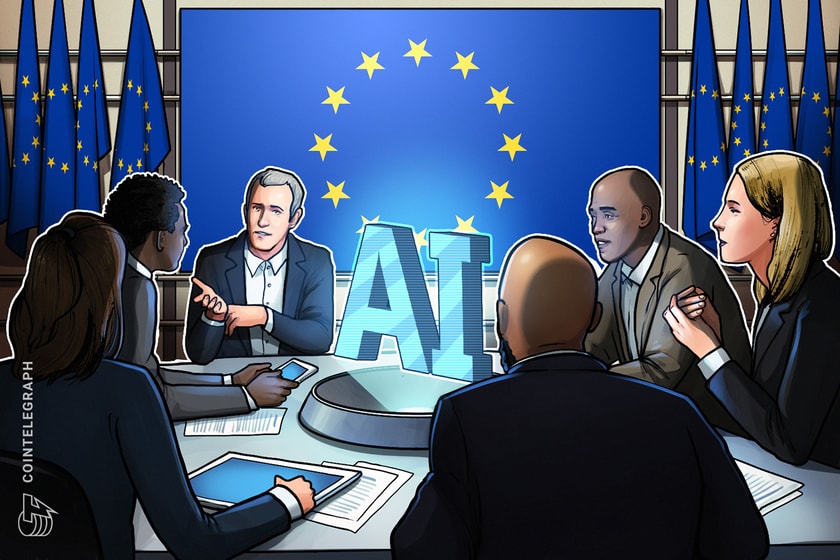[the_ad id="1637"]
[ad_1]
Legislators in the European Union have pushed forward with a draft of a new bill designed to keep artificial intelligence technology in check. According to the bill, the high-risk tools will not be banned entirely, though they will be subjected to stricter transparency procedures. In particular, generative AI tools, including ChatGPT and Midjourney, will be obliged to disclose any use of copyrighted materials in AI training.
The AI developers came under intense scrutiny in Europe recently, with Italy being the first Western nation to temporarily ban ChatGPT. Last week regulators in Germany followed by demanding answers from OpenAI concerning the company’s intentions and ability to comply with the strict data privacy laws enshrined in the EU’s General Data Protection Regulations (GDPR). Marit Hansen, the commissioner for the northern German state of Schleswig-Holstein, told AFP reporters that regulators in Germany “want to know if a data protection impact assessment has been carried out and if the data protection risks are under control.”
Europe’s data watchdog Wojciech Wiewiórowski predicts a sour predicament for United States-based AI companies currently being investigated for alleged GDPR violations. According to Wiewiórowski, OpenAI now finds itself between a European rock and a U.S. hard place, legally speaking. As regulators in the EU look to crack down, U.S. lawmakers could be eyeing European developments as a possible local template.
Meanwhile, Mira Murati, the chief technology officer at OpenAI, believes government regulators should be “very involved” in developing safety standards for deploying advanced AI models such as ChatGPT. However, she doesn’t see a proposed six-month pause on development as the right way to go.
LUNA is not a security, Korean court rules
A South Korean district court has dismissed charges of security violations against former Terraform Labs CEO and co-founder Hyun-seong Shin. The court deemed Terra (LUNA) — the native token of the Terra ecosystem — as non-security under the country’s Capital Markets Act. Other courts had previously used cautious language, suggesting “there is room for dispute in terms of the law” and “it is questionable whether the Capital Market Act can be applied.”
Do Kwon, co-founder and CEO of Terraform Labs, has asked for the dismissal of charges against him by the U.S. Securities and Exchange Commission (SEC). Kwon argues the SEC’s claims are invalid, pushing back…
Click Here to Read the Full Original Article at Cointelegraph.com News…
[ad_2]
[the_ad id="1638"]
